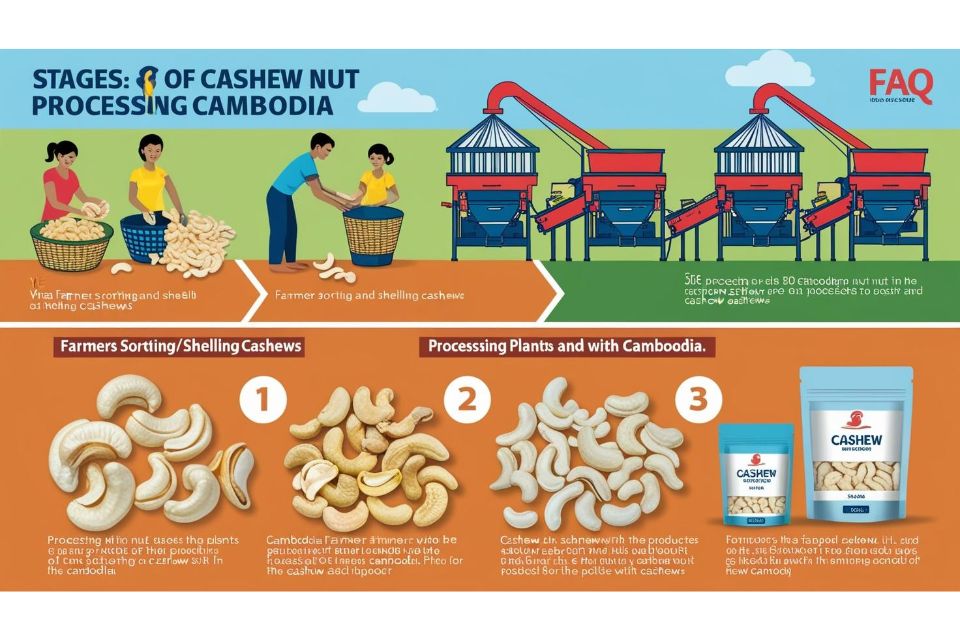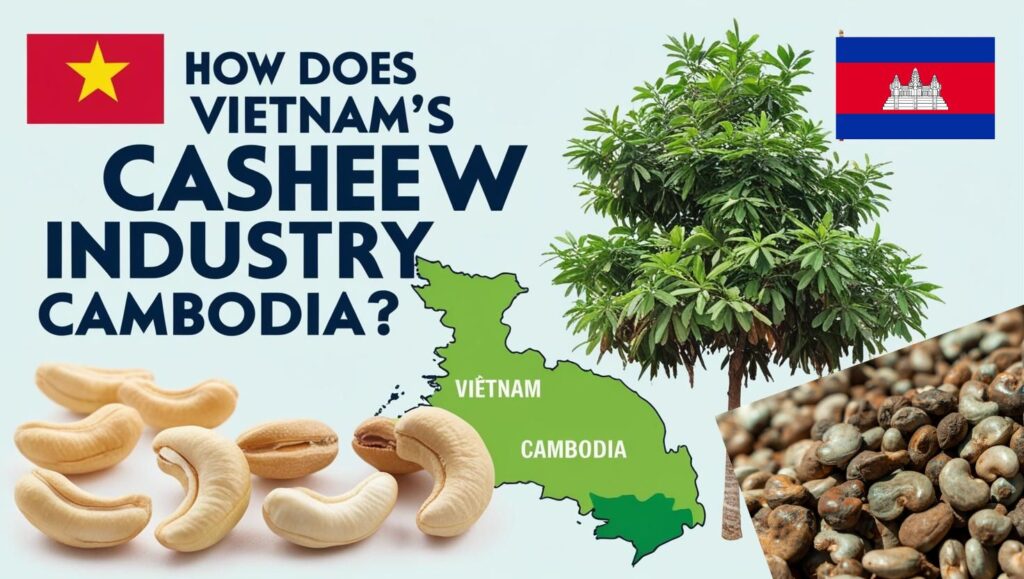What are the biggest opportunities and challenges for Cambodian cashew processing?
Let’s dive deep into the opportunities and challenges for Cambodian cashew nut processing, exploring the nuanced landscape of this critical agricultural and economic sector.
Opportunities: The Promising Landscape of Cambodian Cashew Processing
- The Quality Advantage: Raw Cashew Nut (RCN) Excellence Cambodian cashew nuts represent a remarkable agricultural asset, distinguished by their exceptional characteristics. The quality of these nuts isn’t just a minor advantage—it’s a fundamental differentiator in the global market.
Flavor Profile Impact Imagine a cashew nut that stands out in international markets, particularly in discerning markets like Japan. The superior flavor of Cambodian RCN isn’t an accident but a result of careful cultivation, soil conditions, and agricultural practices. This quality translates directly into market demand, creating a natural competitive edge.
- Kernel Outturn Ratio (KOR): A Technical Triumph The Kernel Outturn Ratio is a critical metric that might seem technical but has profound economic implications. At 27%, Cambodia’s KOR outperforms significant competitors:
- Cambodia: 27%
- India: 26%
- Vietnam: 24%
To understand the significance, consider this analogy: If you’re buying a bag of apples, would you prefer a bag where 27 out of 100 apples are perfect, or one where only 24 are? In cashew processing, each percentage point represents real economic value.
A high KOR means:
- More usable kernels per unit of raw nuts
- Lower processing costs
- Higher potential profit margins
- More efficient use of agricultural resources
- Taxation Incentives: Governmental Support for Growth Cambodia’s approach to supporting Small and Medium Enterprises (SMEs) is strategically brilliant. By offering a five-year income tax exemption for businesses using local inputs, the government is essentially creating an incubation environment for cashew processing enterprises.
This isn’t just a tax break—it’s an invitation to innovate, invest, and build sustainable agricultural processing capabilities.
Challenges: Navigating a Complex Landscape
- Regional Competition and Raw Material Dynamics : The memorandum of understanding between Vietnam and Cambodia to export 1 million metric tons of RCN by 2028 is a double-edged sword. While it demonstrates regional cooperation, it also introduces potential challenges for local processors.
Potential Implications:
- Increased RCN prices
- Competition for raw materials
- Potential squeeze on local processing margins
- Skill Development: The Human Capital Challenge The current lack of skilled labor in cashew nut processing isn’t just an obstacle—it’s an opportunity for strategic investment. Successful enterprises will view this challenge as a chance to:
- Develop comprehensive training programs
- Create career pathways in agricultural processing
- Build a specialized workforce from the ground up
- Infrastructure Hurdles: Electricity and Operational Efficiency High electricity costs and unreliable supply represent more than just a technical challenge. They symbolize a broader need for infrastructure development. Processors will need to be innovative, potentially exploring:
- Alternative energy solutions
- Efficient processing technologies
- Backup power systems
- Value Chain Transformation : The existing RCN export-oriented value chains aren’t just logistical structures—they’re deeply entrenched economic ecosystems. Transitioning these will require:
- Strategic partnership development
- Investment in new capabilities
- Flexible, adaptive business models
- Price Volatility: Risk Management Imperative Short-term price fluctuations caused by climate change, pest incursions, or international market shifts aren’t just potential risks—they’re inevitable challenges that require sophisticated risk management.
Strategic Recommendations for investing in Cambodia:
- Develop robust financial reserves
- Implement forward contracts
- Create diversified procurement strategies
- Invest in technology for better predictability
A Landscape of Potential Cambodian cashew nut processing isn’t just an industry—it’s an evolving ecosystem of opportunity. By understanding and strategically addressing these challenges, processors can transform potential obstacles into competitive advantages.
The future belongs to those who can see beyond current limitations, who can invest in skills, technology, and adaptive strategies. Cambodia’s cashew processing sector stands at an exciting precipice of transformation.


